I attended the kick-off of the Diversity in YA tour this Saturday. Diversity in YA is the brain-child of two talented YA authors, Cindy Pon and Malinda Lo, and is a celebration of the portrayal of diverse cultures in young adult fiction. This Saturday’s event was focused on Asian American authors (Malinda Lo, Cindy Pon, Gene Luen Yang, and J.A. Yang), though the entire tour features books from a wider range of ethnicities and cultures. I’ll post a write-up of the topics discussed in the panel, but to start things off, one question from the audience made me reflect upon my early reading habits.
The question was regarding what each of the authors read growing up and almost every single author, with the exception of Gene, spoke about not reading any book with Asian characters. Cindy Pon mentioned that she was writing the books with the adventures she never got to read. Malindo Lo remarked that a teacher passed her Maxine Hong Kingston’s Warrior Woman and she wasn’t able to connect with the book at all! J.A. expressed that he similarly didn’t read books with Asian characters growing up because he liked books with warriors and protagonists that were quite different from him. Only Gene, with his background of comic book reading and early childhood growing up in Asia (I forget where, sorry Gene), had a wide range of Asian stories available.
This made me realize that I have always been in search of dragons. I would literally, look for covers with Asian looking art or titles that sounded Asian. Perhaps this is why I ended up reading so much fantasy because the dragons I usually found were from those books.
I don’t know if it was necessarily because I wanted protagonists that I could identify with. I felt I identified with all the Caucasian protagonists I was reading just fine. I shared their adventures and felt all their angst. Reading about Japan or China (never Vietnam unless it was about the War!) felt like reading about a foreign and exotic place for me too, so it was as more my desire for vicarious exploration and adventure than my need to read about characters with similar backgrounds as me.
When I read Amy Tan’s Joy Luck Club, I was very deeply moved. I mean, yes, they were deeply emotional stories, but they struck a chord with me, not only because they expressed some very core elements of being Asian American that I hadn’t seen in writing in this way before, but because I knew that other people were reading it too. Non-Asians were reading it. My high school friends were reading it.
Crouching Tiger, Hidden Dragon gets knocked by a lot of wuxia purists because they say it’s a poor example of the genre. That it was watered-down for mainstream audiences. I don’t agree at all. And when I saw the trailer for that movie, I became so incredibly excited and showed it to everyone. It was a wuxia film like the ones I grew up with, but it was being shown to mainstream audiences. It was the absolute joy that something I loved could finally be shared with other people who had never seen a Jin Yong film. And it could be shared in a way that I couldn’t explain with words.
So I’ve always been in search of dragons, but not only for myself. Not to find Asian heroines that look like me, but to find something that could be shown to people who don’t look like me. Who have no idea about the stories that I enjoyed.
I remember Taye Diggs once corrected a reporter who called one of his films a “Black film”. He said it’s not a Black film, it’s a film with Black actors. And people didn’t seem to understand what the big deal is. I believe Enrique Iglesias has made similar comments about his music not being Latino music, but music with Latino influence. They’re not rejecting their own race or getting nitpicky — I get it now.
Media is about connecting to a wider audience. It’s about reaching out to people who have never been somewhere, experienced something, thought of life in this particular way. When a work becomes marginalized as an Asian work for Asian people, it feels to the artist that they’re being dragged two steps back from their real goal.
So, I’m rather tickled pink that after searching for “Dragon” books for so long, I have my own Dragon title coming out in September: The Dragon and the Pearl. Ha, ha — stereotypical Asian title. Whatever. I’m so proud that maybe someone in search of dragons will find my book and be pleased that it’s not about Western fantasy dragons or Vlad Tepes or European warriors. I do hope that Asian women will read the story and identify and fall in love with the romance, but I’m also hoping many of those people searching don’t look a thing like me, or come from a similar place that I do, at all. And I hope they’ll identify just as much with the characters.


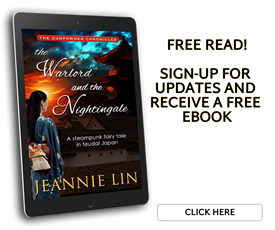
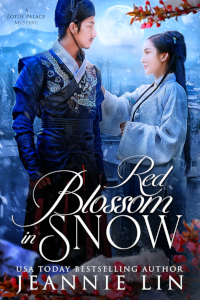
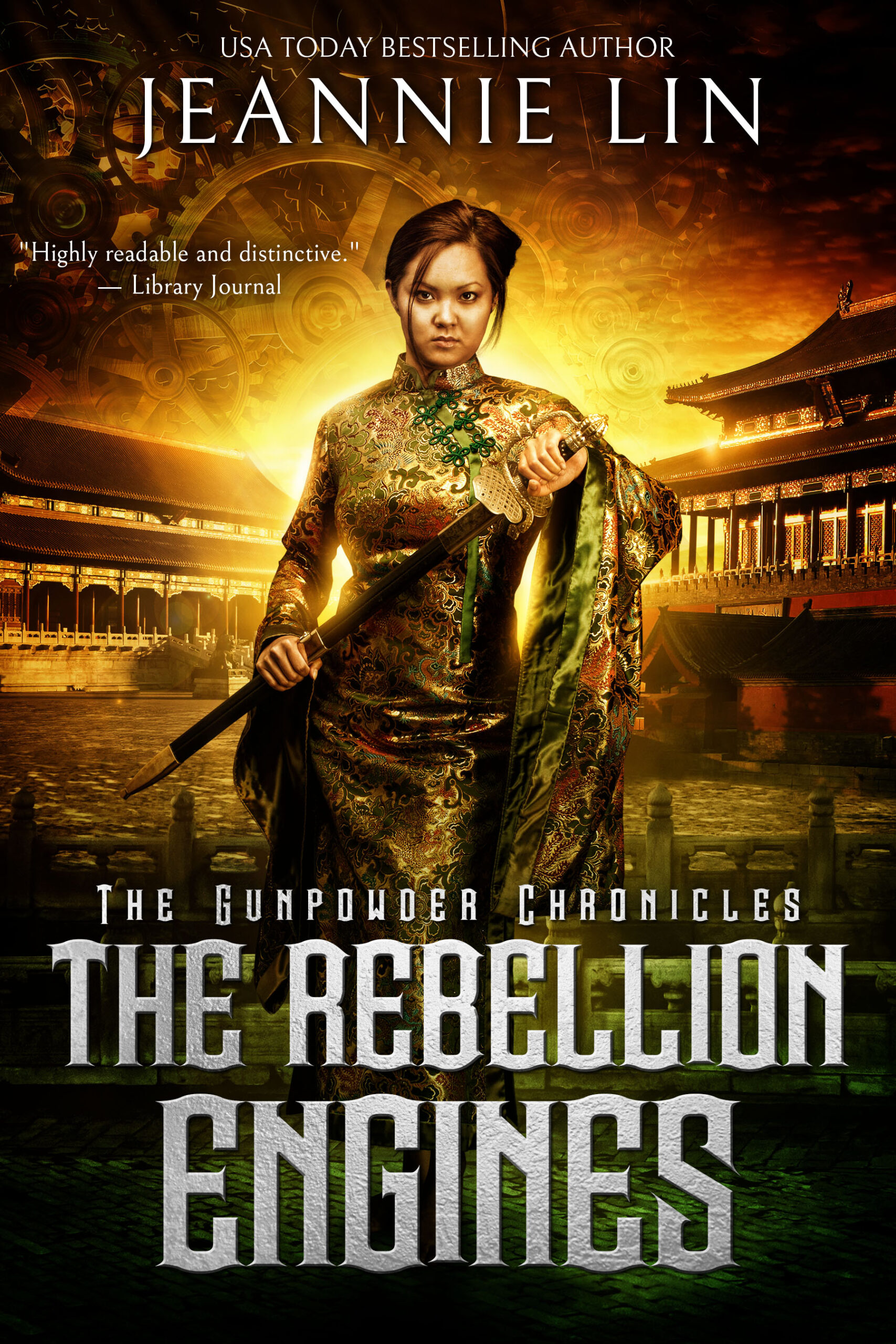
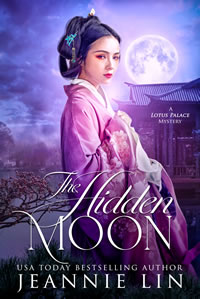
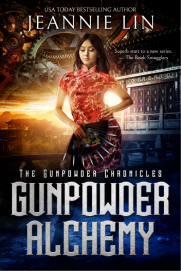
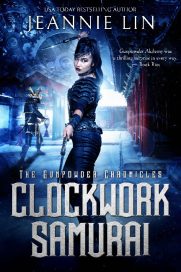
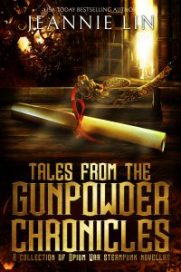
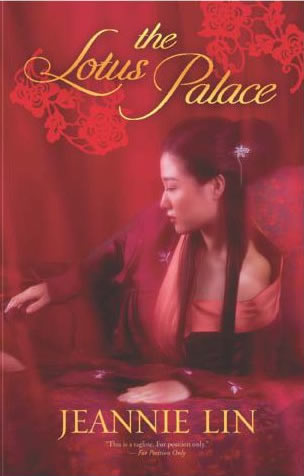
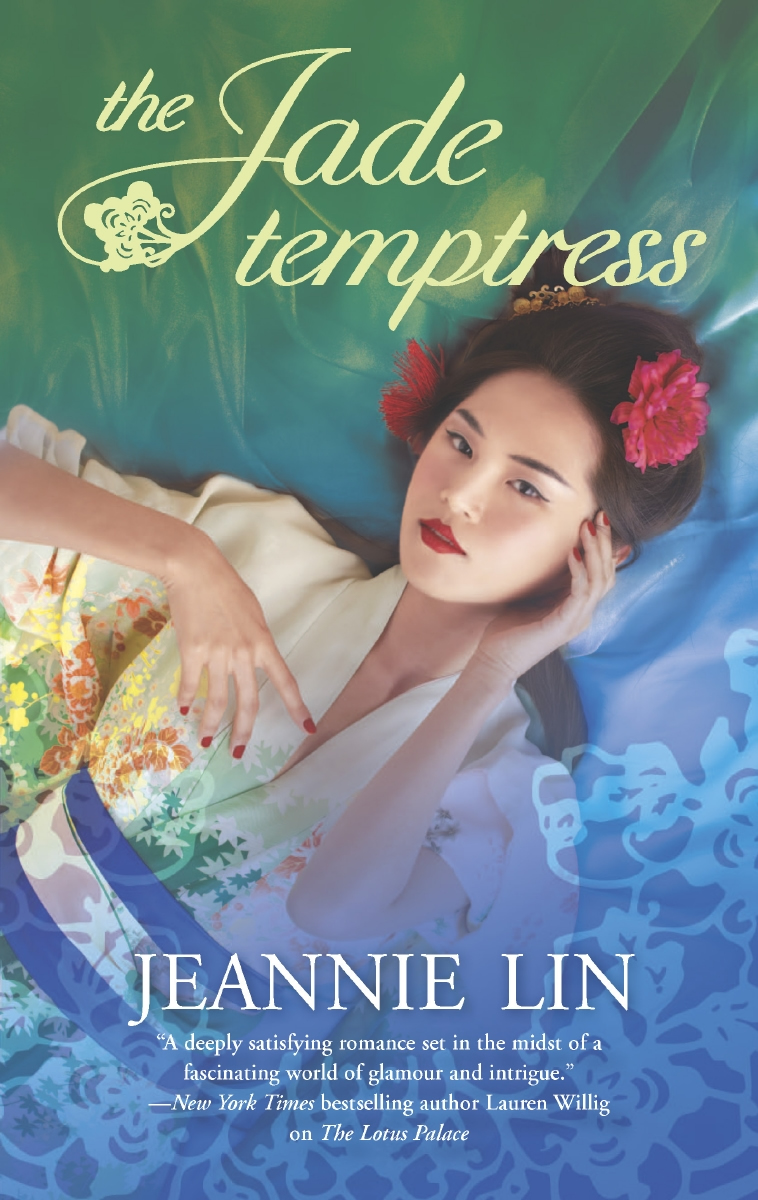
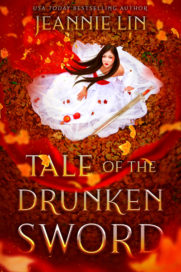


May 08, 2011 @ 10:05:45
This is awesomely inspiring. I’ve tried to inject Latina influences into some of my books but I’m afraid I’m just not that good at it. I always get caught up in other aspects of the story and cultural things fall by the wayside. I love your books and I’m excited that you’re excited about sharing that part of you with us. 🙂
May 08, 2011 @ 10:27:05
I remember feeling the same way when Jackie Chan and Jet Li were breaking out in the US in the mid 1990’s so you could suddenly find VHS tapes (whoa, VHS!!!) of their older movies that I had grown up watching in Taiwan.
I had always felt excluded from my friends. Not only from not having grown up in the same town as they had, but also from not having the same pop culture base so I would miss jokes and references.
They made their best effort to catch me up 80’s pop culture, but I had no way of sharing my own until then.
Thank goodness today for the internet – you can find almost anything now!
May 08, 2011 @ 11:23:40
“This made me realize that I have always been in search of dragons. I would literally, look for covers with Asian looking art or titles that sounded Asian. Perhaps this is why I ended up reading so much fantasy because the dragons I usually found were from those books.”
This really spoke to me! When I was 12 years old, this was literally the reason I picked up my first novel in translation, Dragon Sword and Wind Child, because it had an Asian girl on the cover and because of the title (though in retrospect it is hardly an accurate translation of the actual title and more a product of the times). But I’m glad I (and others) have always been on this unconscious search, because that more than anything has made me who I am now.
May 08, 2011 @ 12:22:04
I was lucky to own a book of international folk tales when I was a kid, and several of the stories were from the Far East and Central Asia. Since it was one of the few books I actually owned (we were big library people), I read it over and over.
My favorite story was The Boy Who Drew Cats, complete with bloody illustrations and a boy who slept in a cupboard. I remember being vaguely surprised when I first cracked the covers to discover that there were fairy tales beyond those in the Grimm’s book. I hope tomorrow’s kids find dragons everywhere.
May 08, 2011 @ 13:18:07
@amber – There’s so much that goes into a book, cultural aspects being one of them. I think you can’t be afraid of “doing it wrong”. Cindy made a great point several times during the panel that there are always going to be people who are unhappy with how you did it. You just have to be–and yes, this is a bit Yoda–true to yourself and make what you’ve put down authentic to your own experience.
Thanks for the lovely comments!
May 08, 2011 @ 13:22:58
@Martha – Hi there! It was great meeting you at the panel! Ahh, Jackie and Jet. I so love their films, not because I think it shows people “this is what Asians are like” — cause I hope people can figure that out real quick, LOL. But exactly what you said — it’s so great to be able to joke and make references to the same movies and pop culture. I remember once we had a Hong Kong TVB serial on at home (Heaven Sword, Dragon Sabre w. Tony Leung) and my friends came over and saw it. They were fascinated and I tried to explain, but it was so hard with all the subplots and cultural elements.
Hmm…I wonder if people who watch telanovelas are happy that they’re now hitting mainstream culture in the same way?
May 08, 2011 @ 13:24:39
@nijibug – I’m glad to find someone else who’s been searching for dragons. So many people have come to my blog just googling for Asian stories. I do that too, every so often, so I know exactly what they’re feeling.
May 08, 2011 @ 13:26:25
@Lisa – Was that a Japanese story? I’ve read a few Asian “fairy tales” with the supernatural element and they can get quite macabre! More so than the original versions of the Grimm tales even. Japanese and Korean horror movies freak me out so much. It’s like they don’t have the same boundaries Western films have. *shudders*
May 11, 2011 @ 07:39:08
When I was a kid, I avoided any books with dragons on covers because I associated dragons with St. George, and all European medieval fantasy stories, which wasn’t my favourite kind. I didn’t notice the difference between western dragons and eastern dragons (the former have wings and the latter don’t), but I think I’d still avoid if I knew this, anyway.
“I would literally, look for covers with Asian looking art or titles that sounded Asian. Perhaps this is why I ended up reading so much fantasy”
Same! In this country, though, most I found were historical fiction or memoirs, which conditioned me to assume that novels with Asian-looking covers equal with depressing historical stories where no one survived.
The first children’s book – Asian or not – that blew my mind was Kenji Miyazawa’s “Night Train to the Stars”, which happened to be my dad’s favourite childhood book. I still don’t know if it was because these characters looked somewhat like us or it was Miyazawa’s storytelling skills that made it so poignant. It was the first – and I think still only – novel that truly affected me.
Films on the other hand! 😀 I still think I wouldn’t be so into films if it wasn’t for those HK and Japanese films I grew up with.
I have a very soft spot for Asian supernatural folklore and films, though, because my gran used to tell us kids these oft-morbid stories. For some weird reason hers was the Japanese kind, though. 😀
“When I read Amy Tan’s Joy Luck Club, I was very deeply moved. I mean, yes, they were deeply emotional stories, but they struck a chord with me, not only because they expressed some very core elements of being Asian American that I hadn’t seen in writing in this way before, but because I knew that other people were reading it too. Non-Asians were reading it. My high school friends were reading it.”
&
“Media is about connecting to a wider audience. It’s about reaching out to people who have never been somewhere, experienced something, thought of life in this particular way. When a work becomes marginalized as an Asian work for Asian people, it feels to the artist that they’re being dragged two steps back from their real goal.”
I have mixed feelings about this. While it can be good, but at same time it can be dodgy, due to the unfair burden of representation. Everyone at school read a YA novel about a Chinese immigrant and his family in Britain and the portrayal of this family got my classmates making incorrect assumptions about my family, even though they knew we weren’t technically Chinese (we’re a mixed race East Asian family with a Japanese-born step-father) and the fact our family was part of our town for more than a century.
So Asian characters need to appear in fiction more often, just enough to make the others accept them as one of their own, instead of seeing them as “foreigners” or “immigrants”. I don’t think that will ever happen if Asian characters continue to appear in Asian settings or as martial artists in western settings only.
May 11, 2011 @ 07:40:38
omg. So long. Sorry.
May 11, 2011 @ 16:56:08
@FiaQ/Maili – No prob about the length! I like all the places where you went with it.
“I have mixed feelings about this. While it can be good, but at same time it can be dodgy, due to the unfair burden of representation.”
I think there’s only an unfair burden representation because there’s not enough out there and any one depiction can end up being the only depiction that someone has consumed. However, that first step I think is still an important step. I agree with you that the resolution is to have more depictions out there – which should include a range of everything – from non-fiction to contemporary to fantasy. I’ve heard criticisms by Asians of pretty much every Asian work, including Amy Tan, saying — well now everyone thinks we’re all tragic immigrants! The fault is not Amy Tan’s work. It really is the lack of exposure. People make fun of Lisa See and say, well you have to write about Chinese women suffering and hungry ghosts to sell.
Bruce Lee may have put forth the stereotype of the Asian kung-fu fighting superman, but that stereotype was needed to counteract the subservient coolie or Fu Manchu villain stereotype that existed before. All stories are inherently focused on only a small part of the human experience. All depictions are inherently slanted. So I say bring on all the stereotypes and all the depictions. The truth is somewhere in between and I’d rather have people thinking about it–maybe the picture is incorrect, but perhaps the point is for people to stop thinking there’s one correct picture. 🙂
May 11, 2011 @ 18:17:36
@JeannieLin
Thanks. All fair points.
“I think there’s only an unfair burden representation because there’s not enough out there and any one depiction can end up being the only depiction that someone has consumed.”
&
“It really is the lack of exposure.”
Yes, I believe it’s because producers in entertainment and publishing generally don’t allow Asian stories to go outwith three certain boxes (martial arts, exotic touch (gangster, sex, etc.) or immigrant experience). When I worked in script development, many in-house producers frequently rejected scripts with Asian leads because
a) it wasn’t Asian enough (such as “Why is he BBC if there is no *real* reason for him to be BBC? There has to be a reason. It’s pointless otherwise.” In other words, it’s no good if it has an Asian character and has no Asian food, no “ethnic family-oriented issue”, no martial arts, no immigrant experience or no ‘exotic’ setting. As if Asian ppl can’t offer universal experiences and emotions in other areas. It drove me nuts.
b) a fear that it’d alienate mainstream audience on a basis of (outdated) market research
c) a firm belief that there’s no * charismatic* Asian talent available. (One actually seriously considered getting a white actor in “Chinese make-up”. Thankfully my colleague and I talked him out of this pure insane idea!) Basically, there was a strong belief that if the story has an Asian lead, then it has to have a white lead, too. I think this is why there are so many with interracial relationships or those with white leads with Asian sidekicks or BFFs in films and literature.
But yeah, there is a huge wall of expectations that basically keeps the picture incorrect or stereotypical and pretty much singular. That’s what I find it so frustrating sometimes. For instance, could you say you can easily sell a contemporary romance novel featuring an Asian American couple with no cultural connection to Asia to Harlequin?
I think, as you noted a couple of times, Asian writers (and some writers with stories that feature Asian characters) are often in a no-win situation, which I think sometimes forces them to make compromises and often at their own expense.
All that said, I do feel optimistic!
I do believe that these issues and restrictions will fade with time and that Asian writers can write whatever they want in accordance with market demands, rather than fixed expectations based on theirs or their characters’ ethnicity alone.
I bloody hope so, anyway! 😀
(I admit I really don’t get Lisa See. It at least makes me think about identity issues. That’s a good thing, I suppose?)